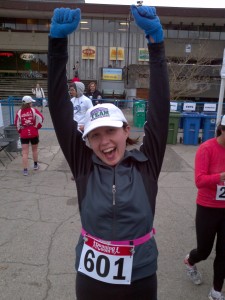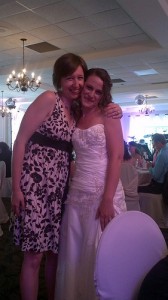One week ago today I saw a small, white envelope in my mailbox in the department. I saw it was from the Office of the President at UBC and I tore it open — careful not to destroy the sacred contents inside. I knew what it was. It was a letter signed by President Stephen Toope telling me he approved my tenure file and I will be promoted to Senior Instructor with Tenure effective July 1, 2014. Tears welled up in my eyes and I blinked them back to actually read the words. I wandered around for a few moments, aimless, slack-jawed, alone. I vaguely remember telling grad student/ former TA and student of mine/ turned sessional instructor Ben Cheung and he congratulated me. He left. I stayed in the mailroom in shock. Larry Walker came by — wise Larry, who knew me as a terrified grad student applying to the PhD program almost a decade ago, and who sat on my hiring committee evaluating my potential five years ago. I looked up at him and said I got tenure, still holding the letter and staring at it. He congratulated me with the gentle sincerity he brings to every encounter, paused, and said “this is something to celebrate, you know.” I did. I knew. He then asked if I was ready to be called “Senior” — ha! Then he called me a “young kid” and we laughed. I was shaken back to reality and ran to my office to phone my husband, then my gran, my mom, my aunt, my mother-in-law, and my friend Lesley who wrote her dissertation back-to-back with me. I posted on Facebook and Twitter and was overwhelmed by more “likes” and comments and retweets of congratulations than I ever could have imagined! My friend Lara called me squealing with excitement — Lara, who I knew as a nervous but extremely competent undergrad deciding on grad schools, now on the tenure-track herself at SFU. It was all a celebration of love and support of my achievement and it was **amazing.** Later that night, and the next, I indeed celebrated. Then I went back to work creating exams.
A week later, I’m starting to open my eyes and face forward. Far forward. So much of my life has had the next step pre-planned. What will you do after high school? University (though that was at one time much more obvious to my teachers than my family). What will you do after University? Grad school (though that was for a long time much more obvious to my undergrad advisors than to me or my family… what’s grad school?). What will you do after grad school? Apply for this amazing teaching faculty position and if I don’t get it then figure out something else (I had no back-up plan, really). I got the job. Amazing!! Now what? Get tenure. You have four years (+8 months of waiting for our committees to evaluate you) to show us we want to keep you. So get to work.
I did. I worked harder than I ever thought I could. And to anyone who has known me a long time, that’s saying a lot.
Now I’m in. I have a permanent job and have started my career with gusto. How do I want to steer it now? What comes next? It’s five years until I’m eligible for another promotion, but that one doesn’t have the threat of getting fired if it’s negative, so it feels different. What teaching techniques or topics do I want to learn about? explore? try? With whom might I want to collaborate? On what? What does a tenured faculty member do to steer the career ship off the coast and into mid-career waters? (Ok, that just got weird.)
So much feels open. So many possibilities. I think first I’ll take a little time to breathe.


 Follow
Follow


